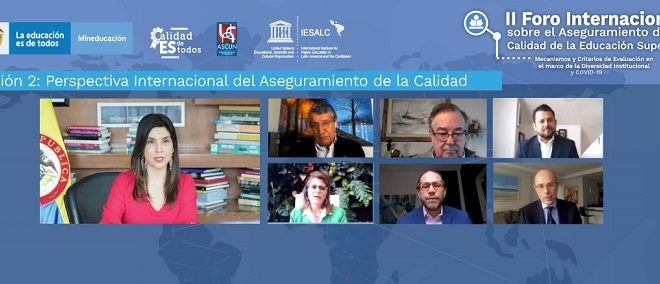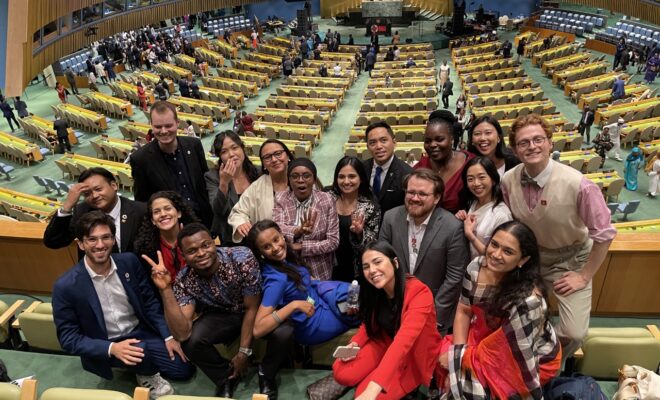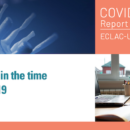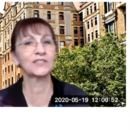UNESCO IESALC at ECOSOC: Higher education is key to achieving SDGs
UNESCO IESALC attended the Economic and Social Council (ECOSOC) Youth Forum 2024, that took place from April 16 to 18 at the United Nations Headquarters, in New York. Youth delegates pointed out the connections between peace and education, underlining the long-lasting effects at individual and societal levels of educational disruptions caused by armed conflicts and other forms of violence.
The panel “Engaging Youth in Building Peaceful and Inclusive Societies” highlighted the importance of education at all levels to rebuild interpersonal and institutional trust in post-conflict societies, focusing on combating inequalities and promoting intercultural dialogue and citizen participation.
On the second day, parallel sessions “Youth Perspectives on Regional Development” were held to discuss the specificities and priorities of each region in addressing the 2030 Agenda. Youth from different parts of the world highlighted the need to include environmental and climate change education at all levels of the educational system, to prepare present and future generations for an active citizenship which is conscious about their responsibilities to the planet and their communities.
Latin American youth demanded that environmental knowledge becomes democratic and accessible, since the language of negotiations and technical language still exclude many climate-affected indigenous peoples from discussions and decisions in this area at the national and multilateral levels.
Education remains a paramount concern for young people, intricately connected to the achievement of all Sustainable Development Goals (SDGs) discussed in this year’s cycle and to the youth recommendations to be considered in the Summit of the Future.
The 2024 ECOSOC Youth Forum culminated with a focus on youth insights, recommendations and demands centered in the upcoming Summit of the Future. Plural youth voices from different social origins, regions and SDGs expertise were responsible for wrapping-up the discussions from previous panels, and voicing concerns that extend beyond high-level debates.
For instance, Lisa Shannon, Global Focal Point for Chemicals and Waste Constituency in the Major Group for Children and Youth (MGCY) reported on the results of more than 30 youth-led consultations about the Summit of the Future, summarized in ten recommendations, including a strong call for the reform of the international financial architecture, the inclusion of youth indicators across national plans of government, the mainstreaming of sexual health and reproductive rights in the Pact, especially with the International Conference on Population and Development (ICPD) +30 happening this year.
Shannon particularly stressed recommendation number 10, requesting recognition and support for youth-led and self-organized mechanisms and urging stakeholders to refrain from creating youth advisory boards or panels appointed without consultations or feedback mechanisms. “The Summit for the Future can be a success if it is co-created with youth, not just as actors for the future, but present partners in its creation”, she insisted.
Another key closing message was a call for peace and justice (SDG 16), stressing the long-lasting effects of violence in individuals and societies, including education disruption and mistrust in democratic institutions. Both in peace and in conflict times, educational initiatives must be in place to foster a culture of peace, intercultural dialogue and social cohesion, and, as Mai Thin Yu Mon, Co-Chair of the UN Global Indigenous Youth Caucus (GIYC), mentioned in her final remarks: “A holistic peace rooted in human rights is a condition for any development discussion.”
On this capstone day of ECOSOC Youth Forum UNESCO IESALC also co-organized two side events with valued partners: “Supporting the Right to Higher Education of Students with Disabilities” and “Greening Higher Education Institutions: bridging SDGs 4 and 13”. More details on their debates and results coming up soon.
RELATED ITEMS














